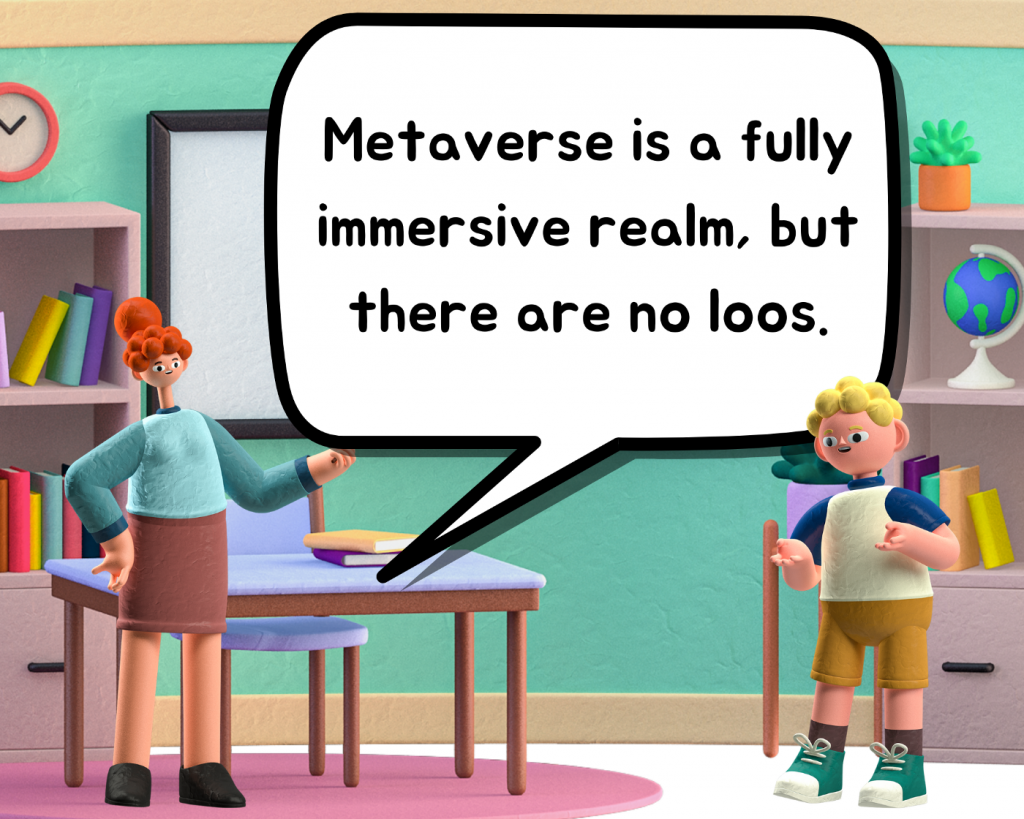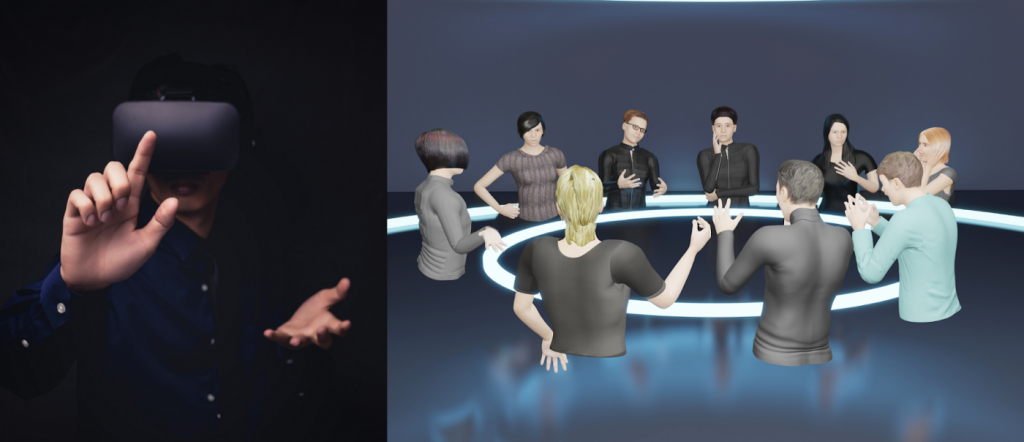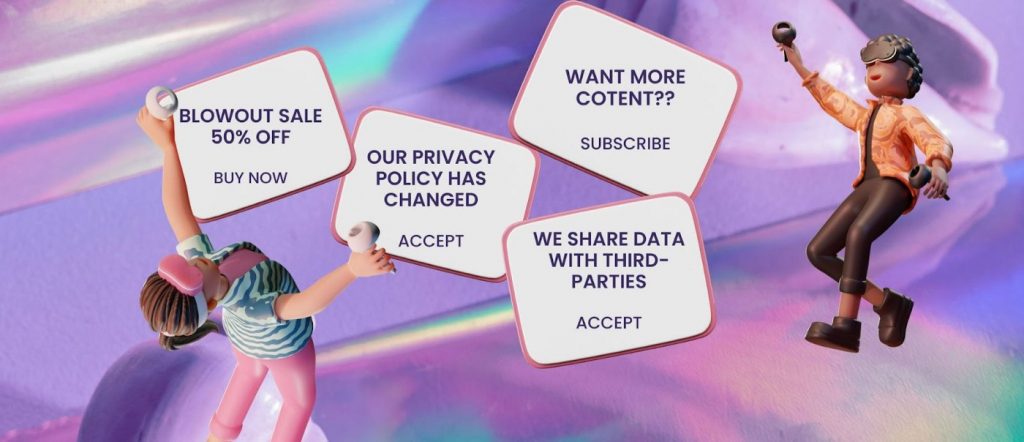With the maturing of blockchain technology, many concepts that early existed as theories are now starting to take shape. The blockchain products such as cryptocurrencies and NFTs have made it possible to build a fully functioning economy inside a virtual world where you can buy and sell any virtual assets. A lucky few have proactively figured out how to rake in boatloads of cash by selling virtual lands, digital art objects, etc. Now the latest fad is the blockchain-enabled “METAVERSE”.
Let’s decode METAVERSE.

In the modern backdrop, the term “metaverse” refers to a virtual space created within the new Internet using 3D Technologies. The concept is viewed to be a blend of technologies such as blockchain, augmented reality, NFT, and many other advances of recent years. The state of art technologies enables Metaverse to map everything in the real world to a parallel universe allowing one to create a novel digital space. Experts believe that creating a blockchain-based metaverse can open up a new, amazing virtual world that will change how people interact. Let’s see how.
The story begins here 🎙️🎙️🎙️
The idea of the metaverse-a virtual world with every opportunity of a real world -was first outlined by Neal Stephenson in a sci-fi novel” Snow Crash” back in 1992. While, in the mid-nineties, the thought stayed only a dream. Yet, with the coming of blockchain it was found with a job for self in many tasks that proactively drew a large number of individuals all over the planet. With Facebook further changing its name to Meta in 2021, the idea became a new barometer of social networks and three-dimensional (3D) virtual worlds. Inside the Metaverse, the user is immersed in a virtual space powering to do everything they do in real life. Let’s take a look and understand the Metaverse credits for the future and the role blockchain plays within the Metaverse design.
Construing the METAVERSE
Metaverse, to call it simple, is a virtual digital space constructed using three-dimensional (3D ) technologies. Inside a Metaverse, an individual can create his avatar and can interact in the virtual world using the same. Imagine attending an online meeting, well not the regular video conferencing but an immersive experience in a virtual world where you can walk around and have your digital avatars socialize, connect and interact with other people, do transactions, buy digital arts, play immersive games, and a lot more. Metaverse realizes these real-world actions by assisting you to live digitally.

With the growth of the internet, smartphones, and VR goggles the concept is gaining more traction and becoming more significant daily. A lot of companies are into investing to create their own metaverse environments. However, despite the great attention and benefits, a natural question in the Metaverse is how to secure its users’ digital content and data. Here is the answer to the blockchain technology and its like to the Metaverse.
Blockchain closely resides for the Metaverse owing to its distinct features of decentralization, immutability, and transparency. However, it’s not that alone. The motivation behind the integration of blockchain technology is several. To get started, let’s look at the metaverse applications first so that we understand the blockchain play.
Popular Applications of Metaverse
Online Video Conference: People can utilize a friendly avatar to walk around and work in the virtual space.

- Digital Real Estate: Users can collect/sell household NFTs to the public, as well as organize art exhibitions, music festivals, gaming competitions and so on.
- Digital Arts: Blockchain technology has brought traditional artworks from offline to online. With Metaverse, the users can enter the virtual gallery to appreciate from all dimensions.

P2P Transactions: Metaverse provides a digital platform where people can “digitally” co-exist and host a plethora of transactions.
The above is a very refined list of metaverse applications. Given the latest trends, the Metaverse will be more decentralized and independent than the real world. For instance, a high-esteem resource like a work of art would be possessed by a solitary individual or an association in the real world. Howbeit, in the digital world, it tends to be possessed by a huge number of individuals with fractional asset ownership. Likewise, Decentralized Autonomous Organizations or DAOs can have a virtual organization in the Metaverse where people can join and participate in the organization’s operations.
The metaverse core components- digital proof of ownership, money transfer, governance, accessibility, interoperability, motivate the blockchain to coexist in order to create a transcending digital environment.
Blockchain Inside Metaverse

Now that we discussed the inevitable relationship between Metaverse and blockchain, let’s understand how blockchain helps to overcome some potential challenges in building a metaverse ecosystem.
Data Privacy and Security: The Metaverse collects tremendous volumes of sensitive information to present users with the most incredible experiences. Organizations or applications need this information for the effective advancement of focusing on frameworks.Assuming that the data is spilled under the control of some unacceptable individuals, they could target users in the real world. Blockchain, with its authentication, access control, and consensus mechanisms, can provide users complete control of their data, thereby securing the data privacy of the users. The blockchain uses asymmetric-key encryption and hash functions, ensuring data security in the Metaverse.
Quality of the Data: The Metaverse receives data from multiple applications ranging from healthcare to entertainment. The AI models in the Metaverse rely on this data for making critical decisions for its stakeholders. Creating the objects in the Metaverse relies highly on the quality of data shared by the users from the real world. Blockchain can provide complete audit trails of transactions, allowing individuals and organizations to validate all transactions. This eventually increases the data quality in the Metaverse.
Seamless and Secure Data Sharing: The Metaverse depends on AR and VR devices, resulting in a more connected and immersive world. The Metaverse’s real benefit resides in its integration with AR on digital and physical objects. The Metaverse’s success depends on the seamless sharing of AR and VR data, which enables the development of new, advanced applications that aid in resolving real-world problems.
Data Interoperability: In the Metaverse, stakeholders need to access and hold assets in different virtual worlds and use a variety of applications. Data interoperability across these virtual worlds is limited due to the different environments in which they are built. It is possible to exchange data on two or more blockchains located in distinct virtual worlds using a cross-chain protocol. Users can migrate more easily between these virtual worlds because of the blockchain’s interoperability.
Data Integrity: The Metaverse’s data must be maintained consistently and accurately. The stakeholders may lose faith in the Metaverse if the integrity of the data is compromised. The data storage mechanism of blockchain can ensure the data integrity of the Metaverse.
Now the question that comes next is…………………
Is blockchain essential to create a Metaverse?
Well..it need not be. It has to be kept in mind that the Metaverse is not a single entity. Metaverse is a solution that amalgamates all pertinent technologies to create an immersive virtual world for its prosumers. Blockchain in the Metaverse is nearly the only technical option that could right now guarantee the necessary level of confidence for a business when it comes to Metaverse economy-based transactions. Thus, making the role of blockchain in the Metaverse inevitable. Secondly, blockchain is vital when it comes to building an ecosystem in the Metaverse where one can own, create and monetize the decentralized assets. The blockchain applications in the Metaverse provide access to a digital space free from the interference of a centralized institution.
To Conclude,
We could say that Metaverse appears to offer a plethora of possibilities and blockchain is an essential technology for Metaverse’s core components, including digital evidence of ownership, money transfer, governance, accessibility, and interoperability. Metaverse as the future of the Internet, it would be great that we silently watch the growth of Metaverse as it is too early to comment on.

